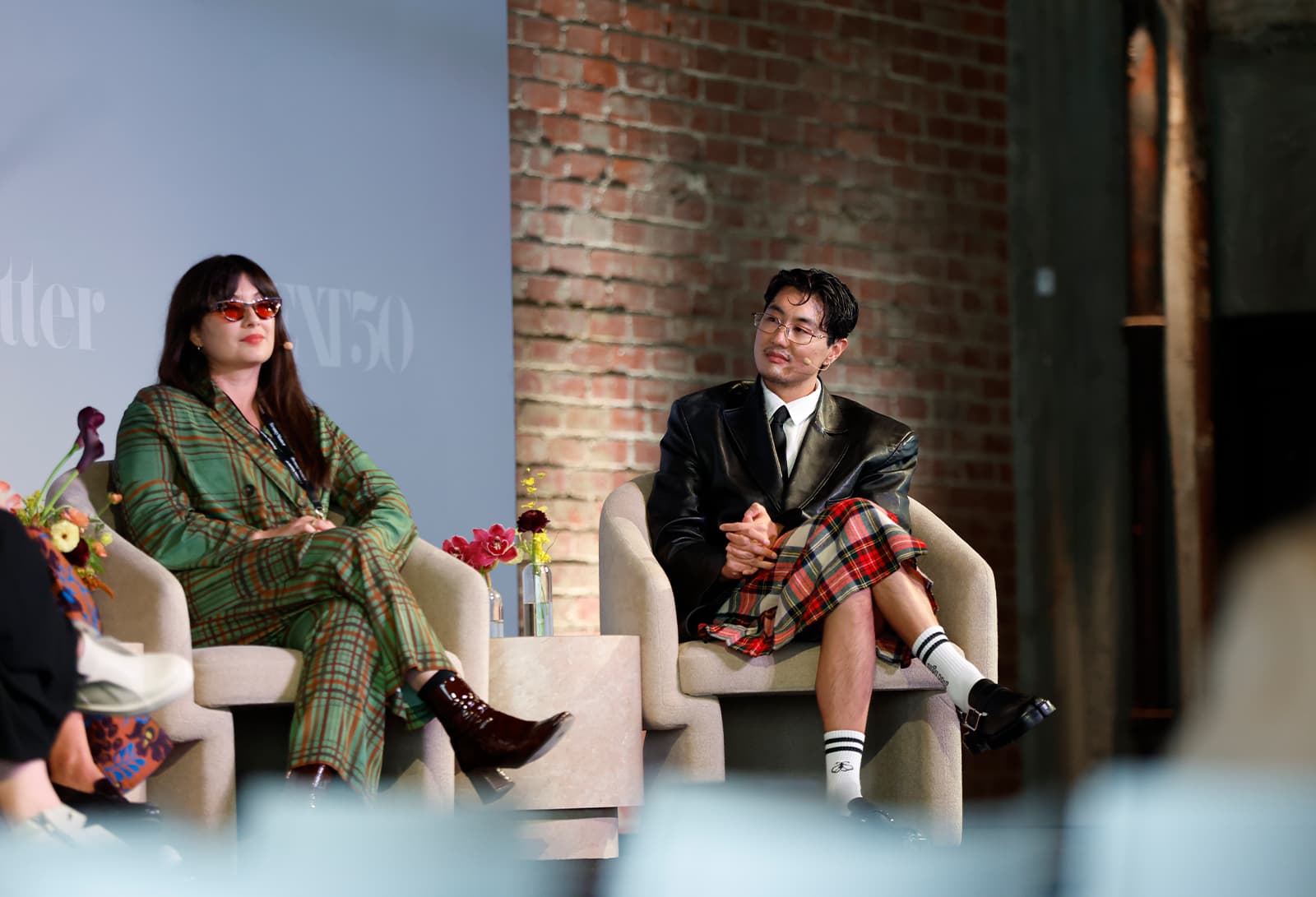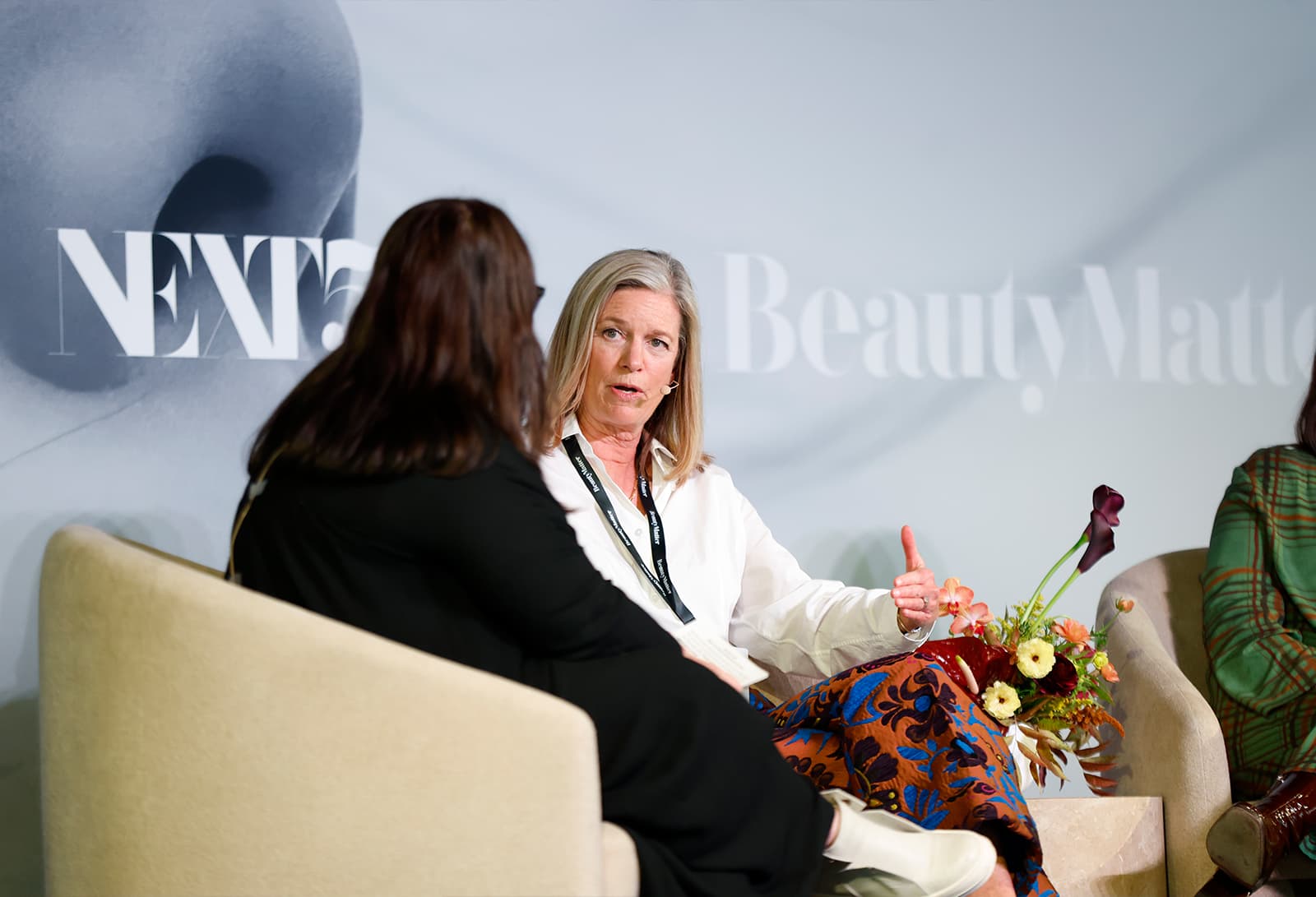Key Takeaways:
At a time when the beauty industry is reexamining what purpose, responsibility, and authenticity truly mean, some founders are proving that building a meaningful brand requires not only a good product, but also conviction. The “Bigger Than Beauty: Building Brands That Matter” panel at BeautyMatter’s recent NEXT50 event brought together three visionaries who embody that belief: David Yi, founder and CEO of Good Light Cosmetics; Eva Goicochea, founder and CEO of Maude; and Hillary Peterson, founder and board chair of True Botanicals. Moderated by BeautyMatter founder and CEO Kelly Kovack, the conversation was a striking meditation on purpose, identity, and the courage to lead differently.
Yi’s reflections set the emotional tone. A journalist turned entrepreneur, he founded Good Light as both a beauty brand and an act of advocacy. His brand didn’t begin with a product brief but with the desire to exist visibly. For Yi, who describes growing up as a queer Korean American in Colorado Springs, Good Light was born out of an absence. That is, a lack of representation, belonging, and permission to take up space in beauty. The brand’s moth emblem encapsulates that ethos. “The butterfly is celebrated in the daylight,” Yi said. “But the moth survives in the darkness and still finds the light.” That metaphor now sits at the heart of Good Light’s identity, a celebration of those who have been unseen in beauty and society.
For Goicochea, building something “bigger than beauty” meant taking on stigma itself. Maude was conceived as a modern intimacy company, built on the radical idea that sexual wellness deserves the same thoughtful design and cultural care as skincare. “Sex is not a trend,” she said. With a background in legislative work, Goicochea approached the topic through both strategy and empathy. “Design isn’t decoration, it’s communication,” she said. Every Maude product, from lubricants to candles, is created to be functional, inclusive, unintrusive, and a quiet rebellion against the shame and spectacle that have long defined the category.
Peterson’s journey was born from urgency. After a cancer diagnosis in her thirties, she discovered that many products she had trusted contained ingredients harmful to health. That discovery became the foundation for True Botanicals, a brand built on the conviction that clean, clinically proven skincare could also deliver luxury and efficacy. “Our mission has always been to prove that products prioritizing the health of people and the planet can be the most effective,” she said. True Botanicals became an early proof point that clean beauty was not a compromise, but a standard worth building upon.
Though their missions differ, all three founders share a belief that purpose and profitability can coexist if alignment and integrity remain at the core. Yi emphasized that his brand’s expansion into Ulta Beauty wasn’t only a retail partnership, but an act of representation. Ulta Beauty, he suggested, reaches the communities often excluded from progressive beauty conversations. “It’s where visibility actually matters,” he said.


For Goicochea, the path through retail has been more complex. Sexual wellness remains a challenging category to scale, particularly when there is little ecosystem support. “You can’t sell beer in a wine store,” she said, highlighting how Maude remains the lone player in its segment at Sephora. However, she remains steadfast, believing that change in cultural perception and retail acceptance requires endurance.
Peterson’s reflections on leadership offered another layer of insight. Having stepped down as CEO, she spoke candidly about the delicate process of handing over her company. “If you’re going to hire a strong leader,” she shared, “you have to give them the space to do their best work.” Her perspective was a reminder that mission-driven brands must also evolve, and that stewardship sometimes means stepping aside to let others scale the vision further.
The conversation also turned to the shifting investment landscape. Each founder has raised capital, but all spoke to the importance of values alignment over valuation. Yi recalled testing potential investors’ comfort with his unapologetically queer identity, while Goicochea emphasized the need for contrarian backers willing to think long-term in underdeveloped categories.
Collectively, the panel’s message was clear: Beauty brands that matter don’t chase moments, they create movements. They build through consistency, community, and courage. They define success not by speed of growth but by depth of impact. As the conversation drew to a close, Kovack noted that “bigger than beauty” is a shift in mindset. It’s the recognition that in today’s industry, influence without integrity is fleeting.
The takeaway from this discussion was profound in its simplicity. It was concluded that meaning is the new metric. Brands that endure are those that stand for something beyond product performance. Purpose-driven beauty companies connect commerce to culture, translating values into tangible impact.
Whether advocating for inclusion, destigmatizing intimacy, or prioritizing wellness, these founders show that meaning and profitability can coexist. As consumers seek brands that reflect their values, the future belongs to those who lead with empathy, transparency, and authenticity. For Yi, Goicochea, and Peterson, beauty is an opportunity to illuminate, to educate, and to heal.